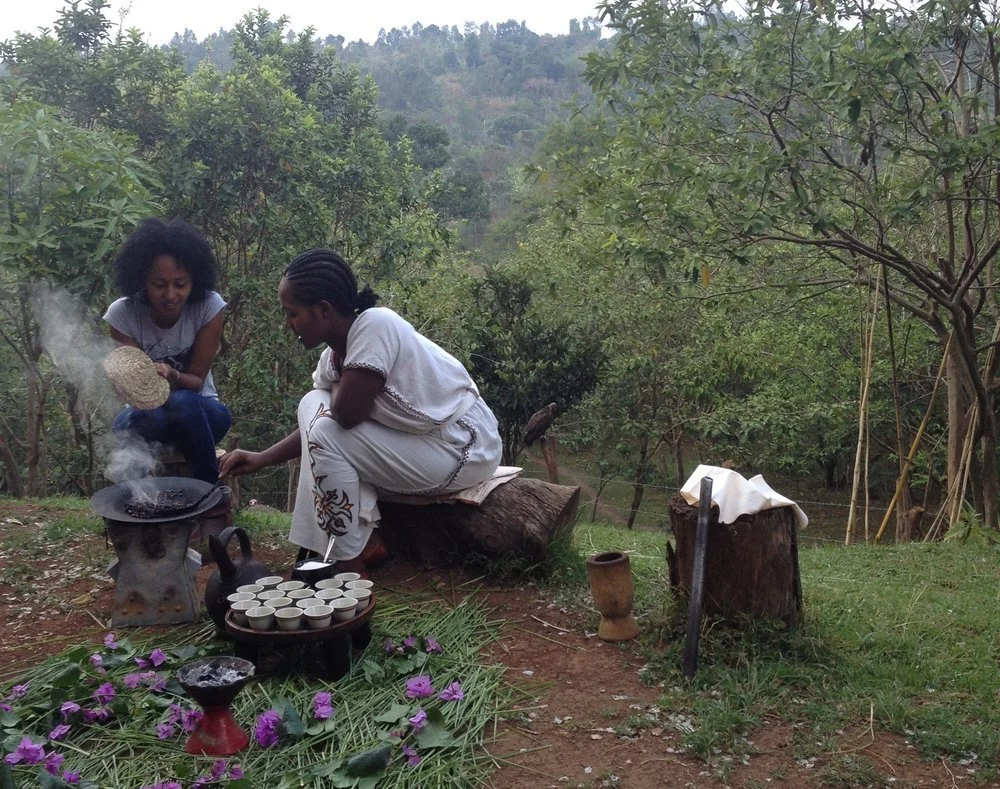Breaking the Injera
When I first step off the plane, turning the corner into the crowded terminal and before I even collect my suitcase from baggage claim, I’m hit by a deep, rich aroma of berbere. Berbere is a pepper that is fire-roasted, sun-dried, and ground into a red powder that spices nearly every dish in Ethiopian cuisine. The smell hangs in the air, turning my jet-lagged stomach into a living, hungry thing again.
I would guess that this is true for nearly every culture in the world, but food is an essential part of Habesha (Ethiopian) culture, life, and hospitality. During the two and a half years that I lived in southern Ethiopia, some of the most profound times of connection that I experienced were around a shared table and over a communal meal.
You see, Ethiopian food is meant to be shared. Traditionally, friends and families will gather around a large communal plate, eating from the same dish of injera bu wat (flatbread with stew), using their hands to artfully eat the meal. Knees rub together as groups crowd around the shared dish, offering each other bites of food, sharing stories, and laughing together. Sinking my fingers into a plate of doro wat (spicy chicken stew), my fingers would sometimes remain stained for days from the deep red sauce.
We know from Luke’s account of the Emmaus Road that Jesus reveals himself through the breaking of bread. “When [Jesus] was at table with them, he took the bread and blessed and broke it and gave it to them. And their eyes were opened, and they recognized him” (Luke 24:30-31 ESV). Why was it that it was not until this moment, gathered around a communal table, sharing food and drink, after a long and sorrowful day of travel, that the two disciples saw Jesus? Why was this the moment and the setting for the disciples’ eyes to be opened?
I know from my own experience in Ethiopia, sharing food so spicy and coffee so hot that my nose would run and my tongue would burn, that there is something powerful about sharing a meal with others. I’ll never forget the day that I sat inside a smoky hut with an old widow and a few of her grandchildren, sharing a simple meal of injera bu shiro (flat bread with chickpea stew). Even though we could not communicate with a single word of common language, I felt that I understood this woman’s soul and life. As tears streamed down her face, we held hands and laughed together, praising God for his faithfulness in our lives. This posture of common experience was formed around the table that we shared and the meal that we ate together.
This power to overcome distance, difference, and cultural barriers can still be found by us in a shared meal today. This is not an experience that was only had in Jesus’ day or now only found on the mission field. Whenever we gather for a meal, let us pray not only over the food, but also over our time at table together. That our eyes would be opened to know each other, and God, more through our shared meals.
Stephie Van Wagenen is the Assistant to the Director for New Wineskins. Starting in 2013, Stephie served for two and a half years in Ethiopia with Water is Life International. She loved her time in Ethiopia, misses the people and the food daily, and is continually thankful for all that God taught her while she lived there. Stephie now lives in Greensboro, NC with her husband Hunter. You can contact Stephie here.



